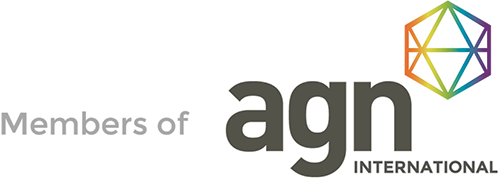we are Committed to our community well-being.
Since our formation, we have always supported nonprofit organizations achieve their mission.
Our founder, the Late Adel Habib documented Adel Habib & Co.’s objective to build a business that takes an active interest in community well-being.
In 1963 Our founder established and sponsored The Maronite Charitable Society: a sewing center which offered women & young ladies, without discrimination of race and religion and who have no or less access to education, the skills of sewing and embroidery which provided them with a career path to work themselves out of poverty.
The Maronite charitable society lasted until 1976. After which, we started to provide long-term non-profit projects our skills and expertise as trusted advisors.
As a family-owned business, we continue to commit to this objective at every level of the company, as we have both a responsibility and an interest in our community for the generations to come.
We have put our high-quality Audit & Assurance and Business Advisory Services to good use to several non-profit projects & organizations since our formation. Below are some:
Was founded in Jordan in 1959 to provide quality education and a stable living situation to orphaned youth and to those living in extreme poverty. The school is built on 650 dunums, which offers its students general education from the first through the 10th grades, following the government curriculum. On completing 10th grade, most Schneller students enter its vocational programs in blacksmithing, carpentry, and car repair. Currently, there are around 240 students at the school, 30 of whom are in the vocational training stage.
Bringing the graduates together and assisting the needy ones, ensuring the continuity of Schneller School, re-establishing the Syrian orphan center (Schneller) that has been operating in Jerusalem from 1860 to 1948, and seizing the first opportunity to restoring the properties of this facility to the new center.
We started providing our activities to The Al-Malath Foundation for Humanistic Care in 2011; we respect and cherish the important role of their contribution to our community.
Jordan registers around 13 cancer cases every day, a total of 4789 new cancer cases were registered in 2009 citing figures from the 14th Jordan Cancer Registry.
During cancer, family members and friends become the inner circle of support for cancer patients. However, and in most cases, family members and friends will need a third party to enable them to deal with the tragedy that they are facing.
The Al-Malath Foundation for Humanistic Care provides, without discrimination, a sound palliative approach to the relief of physical and emotional symptoms that neither hastens nor postpones death.
The service exists in the hope and belief that through providing appropriate care and the promotion of a caring community that is sensitive to their needs, patients and their families may be free to attain a degree of physical, mental and spiritual preparation for death.
The Foundation is dedicated to leadership in, and advocacy for the palliative concept of care, and continually strives for dynamic and effective responses to changing community needs. The Al-Malath Foundation for Humanistic Care is a non-profit foundation that works in collaboration with medical and nursing staff employed in the community and hospitals to facilitate the provision of palliative and hospice care for terminally ill patients. The foundation was established in 1993 with initial funds granted by the USAID. Her Royal Highness Princess Sarvath Patrons The Malath Foundation for Humanistic Care.
We started providing our activities to the Relief Initiative 2 years ago.
The Relief Initiative exists to inspire hope and provide quality healthcare to residents of all ages and nationalities living in Jordan who do not otherwise have access to medical and dental care within the country due to a lack of income or health insurance.
Adel Habib & Co.
Certified Public Accountants© 2024
Powered by NUSRV

Send to us!
